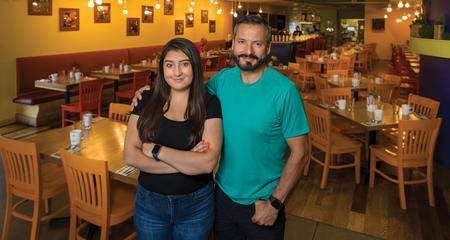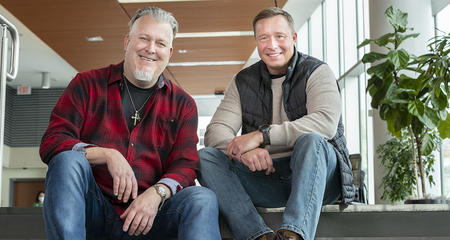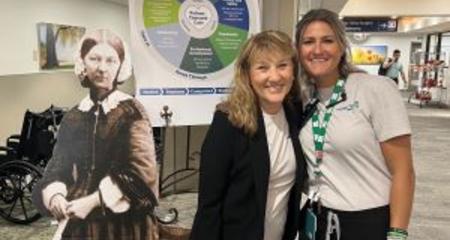Do not now look for the answers…At present you need to live the question. Perhaps you will gradually, without even noticing it, find yourself experiencing the answer.
-Rainer Maria Rilke
Two men, Ted and Ron, were long-term professional colleagues. I do not believe that they were particularly close, but they had been acquainted during their working lives. Each had retired.
In what was a remarkable coincidence, both men were diagnosed with nearly identical cancers. The tumors were of the same type, location and stage. They each came to see me, Ted first and then, several months later, Ron.
Ted was the first to undergo cancer treatment. It was rugged but he recovered well. By the time Ron was diagnosed, Ted had recovered completely.
The two men must have re-connected before Ron came for his first appointment, because he was well prepared. Ted had already filled him in on what to expect.
"Ted has been a great help,” Ron said. His wife agreed. “How soon can we get started?"
Ron's treatment was also rugged, but he recovered completely, as well. At subsequent follow-up visits, they each occasionally mentioned the other. Things went very well for a couple of years.
Unfortunately, Ted developed severe treatment complications and then a massive recurrence of his cancer. Despite several attempts to control the raging cancer, we ran out of treatment options.
I tried to figure out what had happened. Why the difference? There were no obvious answers. The two men presented with essentially identical tumors. They received identical treatment and had very similar underlying health histories. There was no clear reason why Ted’s cancer had returned.
Not long after Ted died, Ron came in for a routine visit. He continued to be cancer-free. As the visit was wrapping up, Ron became quiet. “What a shame about Ted,” he said. “He was a great person.”
“Indeed, he was," I said. "It was an honor to be involved in his care.” It was quiet in the room. What must Ron have been thinking? Ron had watched Ted go through so much. I could only imagine his questions.
I reassured Ron that everything looked great, realizing, at the same time, that I had offered the same reassurance to Ted during his the initial cancer-free interval. Ron could have legitimately asked me, “Could what happened to Ted still happen to me?”
These are moments of uncertainty.
One of my favorite mentors, a plain-spoken surgeon, sometimes would respond to similar questions with a lighthearted but sincere, “I don’t have a crystal ball. I wish I could tell you but I cannot.” I do not know if that is the best answer (and for some people, it clearly is not), but I understand the sentiment.
As surgeons – and as people – we want answers. Sometimes we do not tolerate ambiguity very well.
So, I reassured Ron that he was doing very well. “Things look great. Nothing concerns me at all. We are always available and if you notice any new problems, call us and come in. Otherwise, we will get together again in a few months."
In the meantime, I suspect we will both think about Ted and what his life meant to each of us.



